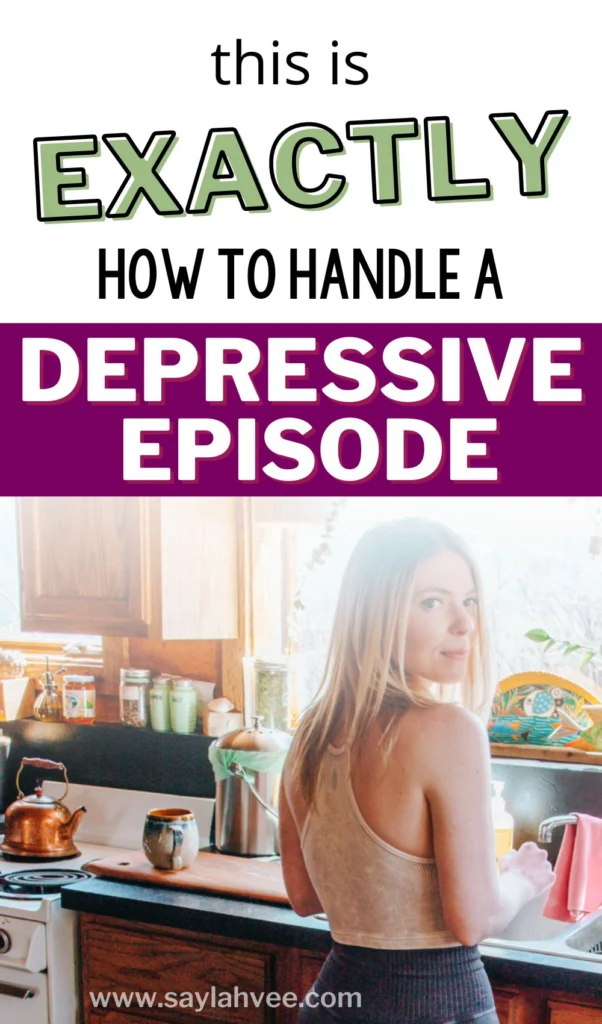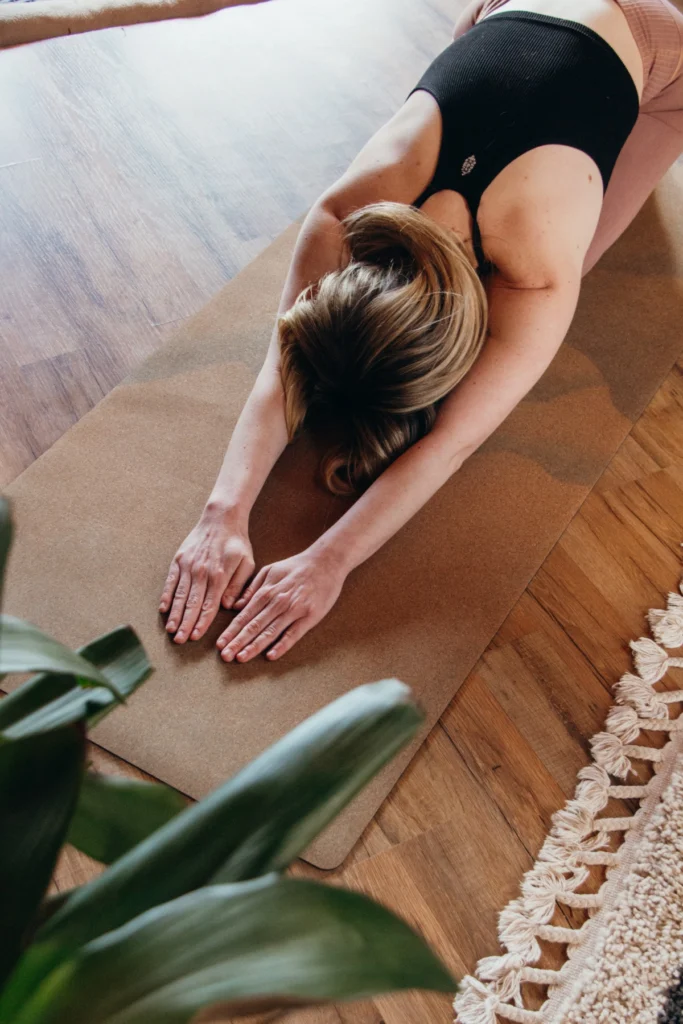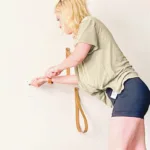21 Nov How to Handle a Depressive Episode (Coping Tips to Get Through)
*disclaimer: this post may contain affiliate links and mental health triggers… and it will definitely contain curse words, hard truths, hope, inspiration, and love
For as long as I can remember (which TBH, is not a long time) I’ve always been a ‘waiting for the other shoe to drop’ kinda gal. So it’s no surprise that making a game plan for how to handle a depressive episode was the first thing I did once my clinical depression lifted for the first time, just twelve months ago.
You see, while I do like to try to stay positive, I also like to stay realistic. And I’m very aware that my major depression is more of a ‘when’ the shit hits the fan kinda thing, and not really an ‘if’ the shit hits the fan kinda situation… soooo yeah. I like to plan ahead.
Which is why the first thing I did after coming out of major depression last year was put together a blueprint for how to handle a depressive episode. Just in case the other shoe did end up dropping and I’d have to face a depressive episode again in the future.
Which I have. And my blueprint saved my life.

Table of Contents
ToggleMe, My Major Depression, and Why You Should Trust Me
When I was living in the thick of my mental health disorder, I’d scour the Internet to find any small speck of hope to hold onto, or any advice that actually felt doable or manageable in terms of where I was in my ability to do the work being advised to try to work through my mental health disorder.
Like, all of the depression coping advice I read felt as though the person who was dishing the goods never actually lived through it, and they instead read it all in a text book. Which is fine. I mean, that’s what doctors do… I get it. They learn from textbooks. And if that advice works for some people, that is so great. But most of the advice I read rarely did a damn thing for me. Which is kinda how this blog was born in the first place. To share depression advice from the point of view of someone who lived it and survived it.
Me
Due to my major depressive disorder, I’ve spent most of my adult life being incapable of doing something like stringing my thoughts into words. Partly because my brain has never been clear enough to put my thoughts together due to such long term major depression. And also due to the fact that I have very few memories from before I was 24, and none of said memories are actually complete pictures.
Every article I read on major depressive disorder talked about doing talk therapy and journaling (amongst other things) in order to feel better. But talk therapy and journaling were consistently true. So I tried. And failed. And tried. And I was passed from therapist to therapist like a hot potato. Not a good look for my confidence or recovery.
My Major Depressive Disorder
I found it really hard to get support for my depression. Each therapist I worked with got frustrated with my inability to use my words while in our therapy sessions. This was in a big way due to my lack of memories from ‘trauma’.
What ‘trauma’, I don’t really know because I don’t remember. But from the few memories and many sessions with many different therapists, one thing has been consistently true. This ‘trauma’ happened somewhere around the age of 12 and it essentially made me emotionally stuck at age 12. And I subsequently blocked out my entire life.
So, just to recap…
We’ve got a majorly depressed young adult with no ties to family, no complete memories of her life, and is emotionally stuck at the age of 12. And apparently the only thing to do to feel better is go to therapy. Great.
Here’s how it went down…
I’d research and find a therapist. After a few sessions of staring at each other because I could not speak my words or answer their questions, the therapists would assign journalling ‘homework’ in hopes to learn more about me and how I needed support. But I would never actually be able to complete it. And then the therapists would eventually get frustrated when I couldn’t do the journaling or the talking.
We’d try for a few more sessions and then I’d eventually be referred out to someone ‘better suited for the level of care I needed’. This left me discouraged and hopeless that I’d ever get better after it happened over and over and over and over and over.
But I did, I did get better.
Well, for now. Like I said, I wrote a whole blueprint on how to handle a depressive episode because I am terrified of having to find ways to live through them again, but also expecting the other shoe to drop at some point. And that’s okay, because that’s just how some people who struggle with mental disorders are wired.
Why You Should Trust My Advice on How to Handle a Depressive Episode
Contrary to what you may now be thinking based on the last section you read, this article is 100% not shitting on traditional therapy, and we will definitely dig into different types of therapy to try. I truly believe that EVERYONE should test different treatment options, especially when navigating through a serious mood disorder or mental health condition.
However, I want to provide my thoughts on how to handle a depressive episode from the point of view of someone who knows how much it sucks when someone tells you to go for a walk or do deep breathing or go to therapy when it just feels like everything is pointless and hopeless as you are seriously contemplating not waking up tomorrow.
In this article we will focus a little on therapy, but mostly I’m going to talk about all of the dumbed down behavioral and lifestyle changes that helped me handle major depression. These ideas can potentially support you too, if you’re looking for some depression relief and the standard go-to’s just aren’t cutting it for ya.
So, whether you’re a first time rider or seasonal pass holder of handling depression… I am spilling the tea on how to handle a depressive episode.
How to Handle a Depressive Episode
The advice you’ll find below will be based on research, which I’ll cite, as well as my personal experiences, and experiences of those around me. I will provide thoughts from different angles and different points of view as depression is not linear, however, at the end of the day.. It’s always important to seek the advice of mental health professionals, as I am 100% not a healthcare professional..
One of the best things I can advise when it comes to working through your depression is to accept that not everything will work for you and you’ll have to take control and get weird. The ideas in this post are not black and white or set in stone, so if they are not working for you… bend them and twist them until they do work or find something else that works even better.
Do. Not. Quit.
Signs and Risks
Before even digging into how to handle a depressive episode, it’s SO important for us to understand common signs, warning signs, and depression symptoms. Depressive episodes have a huge impact on our day to day, so being aware of signs of depression might give us a better chance to manage or prepare for the depressive episode coming our way.
While episodes of depression can tornado through and show up in our lives in different ways, most people will experience similar warning signs of depression. Whether you typically experience mild depression, major depression, bipolar disorder, or other forms of mental illness… there’s a good chance you’ll experience shifts in some or all of the topics below while building up to your depressive episode.
If we are prone to episodes of depression, the most effective ways to handle the episodes will be to have awareness of signs and symptoms. Additionally, it’s important to have an action plan in place to manage the signs and depressive symptoms. And with that, it’s important to note that everyone’s blueprint to get through a depressive episode will look different because we all feel our depression differently.
Low Energy
As a depressive episode is creeping up on you, you’ll most likely notice a big shift in your energy. Typically, the energy shift is a downward spiral, unless you live with bipolar disorder… in which case, your mania could be ramping your energy up.
When we experience low energy, it can lead to a loss of interest in typical daily activities as well as social isolation. Because of this, if you struggle with depression, make sure you are always aware of shifts in your energy levels, interest in things you normally do on a daily basis, or a lack of drive to spend time with friends, family members, or loved ones.
How to Cope:
When you start to notice low energy and begin to fear you may need to figure out how to handle a depressive episode in the near future… KEEP CALM. You’ve got this.
Your first instinct is to probably throw your hands up in a festive manner, yell ‘fuck this’, and then get in bed for 3 weeks (or is that just me?)… but we are not going to listen to our first instincts.
In fact, we’re going to listen to the things we don’t want and then we’re going to lean into those instead.
Don’t wanna go to a friend’s dinner?
Too bad, put some pants on!
Don’t wanna clean your apartment?
Too bad, get that shit clean!
Don’t wanna finish that work assignment?
Too bad, no binging New Girl till ya do!
The FIRST MOMENT you start to feel a shift in energy that is gearing towards your symptoms of depression, what you do with that shift will play the most important role when it comes down to managing a depressive episode or if you can even avoid the episode at all. Let me say that again for the people in the back…
HOW YOU CHOOSE TO TACKLE THE FIRST ONSET SIGN OF A DEPRESSIVE EPISODE HOLDS THE POWER TO MAKE OR BREAK THE WAY IN WHICH THAT EPISODE WILL PLAY OUT.
Challenging that first sign of a depressive episode is one of the most important steps you can take to fight off a full on episode of depression.
Sleep
A shift in your sleep can also be a warning sign that a depressive episode is on the horizon. But this one is kinda specific to certain people. Some people have isolated sleep struggles based on things like life events but others struggle with sleep more often and in general because their sleep goes hand in hand with their depression.
Not getting enough sleep, a complete lack of sleep, or getting too much sleep… especially when experiencing a sleep shift unprompted and swiftly, is often a sign that a depressive episode is coming.
How to Cope:
- Use a sleep tracker and be aware of shifts in your sleep so you have a heads up
- Have a consistent routine for when you get in bed and get out of bed daily
- Try supplements like melatonin
- Eliminate or minimize screen time before bed
Thoughts, Feelings, and Emotions
Symptoms of a depressive episode can also manifest through shifts in our thoughts, feelings, and/or emotions. Severe symptoms include feelings of hopelessness and helplessness.
Overwhelming, increased, or new feelings of sadness (including negative thoughts and negative feelings) or just an all around low mood in general can for sure be warning signs of an upcoming depressive episode as well. These extreme shifts and extended periods of unpleasant feelings can hugely play into more severe symptoms of depression such a suicidal thoughts.
How to Cope:
The first step to coping with a negative shift in emotions is having awareness of your feelings. This awareness is the biggest tool you’ll need in order to cope with them. If you are someone who benefits from talking to people, get in with a therapist ASAP.
If life is feeling too busy for therapy, too bad! There is no excuse to not do therapy if you have a depressive episode on the horizon, especially with so many easily accessible and affordable therapy options.
In you’re in need of therapy tools, try one of these:
If therapy isn’t your jam, get weird! When I realized therapy was doing more harm than good for me personally, I tried other healing modalities. I’ve tried things like ketamine therapy, reiki, acupuncture, float therapy, art therapy, microdosing, and Shamanic healing… amongst many others.
Talking to a Shaman is what does it for me, so that’s what I do. At this point in my healing, I’ve cut back from speaking to my Shaman consistently, but you better believe that when I feel symptoms of a major depressive episode creeping in, the first thing I do is make an appointment with my Shaman.
And so like, that’s what I mean when I say ‘get weird’. Pretty much every article I’ve ever read about how to handle a depressive episode or just recover from depression in general talks about needing to do therapy. But no one talks about what to do if things like therapy don’t work. Well, I say to get weird and think outside the box. Which is what I spend a lot of time talking about on the blog.
Appetite
When thinking about how to handle a depressive episode and the warning signs leading up to one, it’s important to look at our appetite. Appetite is once again, one of those hard to nail down, non-linear, impacts of depression where it can hit one person really hard one way, but hit another person hard the other way.
If you notice a shift in your appetite so much that it results in weight loss or weight gain, you may want to consider if you are experiencing any of the other warning signs above as well. A shift in appetite can absolutely be isolated from and impacted by things other than depression. However, we don’t want to take this shift lightly and completely write it off which is why I suggest looking at if you are experiencing a change in your appetite in conjunction with the other depression warning signs above.

Coping Tips
Now that we know what to look for, let’s talk about action!
Unfortunately, there’s no easy switch to flip that will kick your pesky depression to the curb. There’s just a bunch of tools to and a bunch of work to do, so let’s roll up our sleeves and dive in!
The coping strategies below are all great tools to have in your pocket to help you prevent or handle a depressive episode. However, it’s SO important to understand that they might not all work for you. And with that, there’s no need to get discouraged if things like trying to stay in the present moment pisses you the fuck off. I feel that. Just try something else.
The thing about handling a depressive episode, is that you are going to need to push your mind and find ways to motivate yourself. You are simply not going to want to do any of the things below but you HAVE to. So pick what you can swallow the most to try first, and start figuring out what to put in your personal blueprint for handling a depressive episode.
Grounding
Grounding can be a helpful tool when working through a depressive episode. Grounding is a practice that helps you stay in the present moment and just hit pause on all the bullshit around you.
When we are not grounded, we are typically in a state of anxiety or worry. Staying grounded lets us turn off the part of our minds that spiral so far into the future or back to the past that we can’t see what’s right in front of us.
When it comes to getting grounded, there are pretty well known tools like deep breathing and senses activities… but I love this list of 30 unique ways of grounding techniques.
Personally… when I was in deep major depression, grounding work did not do anything for me, but there was a girl in one of my Intensive Outpatient Groups who could not go a full day without grounding work… so give it a try, but don’t judge yourself if it doesn’t work for ya.
Today, not being in a state of major depression, I actually love grounding work so make sure to try things more than once.
Mindfulness
Okay, so I’ve started to realize that ‘mindfulness’ gets lumped in with the dreaded ‘M’ word, meditation, and then mindfulness kinda gets a bad rep. And then, most people shy away from the idea of practicing mindfulness because they think it’s meditation. Which kinda sucks because mindfulness is a great tool to sharpen focus, eliminate anxiety, and cut back negative thoughts.
And don’t get me wrong here… mindfulness and meditation (and even grounding) do kinda have the same principles and are often used interchangeably so I get why they are lumped together… but before you check out from this part of the post and skip to the next, we’re talking about mindfulness, not meditation (though some people do swear by meditation for their depression!)
I love the way this article distinguishes the difference between mindfulness and meditation. They say that mindfulness is a quality, while mediation is a practice. Meaning: Mindfulness is a kind of state we want to achieve and meditation is a vessel that can help us get there.
But not everyone likes that particular vessel. In fact most people turn around and frantically run away at just the mere notion of meditation. So we’re gonna talk about some other vessels that help us achieve mindfulness without making us want to poke our eyes out.
The dictionary states that mindfulness is a “mental state achieved by focusing one’s awareness on the present moment, while calmly acknowledging and accepting one’s feelings, thoughts, and bodily sensations, used as a therapeutic technique”.
That’s it. Nothing more, nothing less. How you get to that state of mindfulness is up to you!
Below are a few ways that have been helpful for me to achieve a state of mindfulness while in a depressive episode.
Journaling
While I’ve always struggled with journaling… I think I would have liked it sooner had I found the right tools. As I started coming out of my major depression last summer, I found these super cute guided journals and I’ve been hooked on journaling ever since! So disclaimer, I only do super easy guided journals but hey, something is better than nothing!
Check out my favorite easy guided journals to help with your mindfulness.
Coloring Books
Coloring is a great way to zone out and achieve a state of mindfulness. This is one of those tools that I thought I didn’t like, but I actually just needed to do some digging and find coloring books that were right for me.
I learned that I cannot do mandala coloring books. They stress me out. I’ve since found a brand of coloring books that I super super like, called Design Originals. There are a whole bunch of different books from them on Amazon, but I’ve linked some of my favorite coloring books here.
Self-Help Books
Self help books can be a great way to help you with mindfulness as they will dig into different techniques to try and provide more in depth support. They are also great for just self help and awareness in general. Use inspirational self help books to learn how to tap into your mindfulness.
Mindful Eating and Cooking
Eating can actually be an act of mindfulness by invoking your senses. Being aware of our senses lets us be present in our environment. And focusing on your food is a really easy thing to pay attention to as you work to center, ground, and be mindful.
Yoga
Duh. Everyone and their dog knows that yoga is an amazing and powerful tool for mindfulness. And unfortunately I’ve heard so many people say they won’t try yoga because they don’t like to meditate. Not the same thing people, not the same thing.
Mindful yoga helps you by focusing your mind on moving your body in sync with your breath which in turn helps you quiet your mind and be present in the moment.
Again, like with coloring… ya gotta find the right style of yoga that tickles your fancy. Don’t try it once and quit. Explore different styles, studios, and teachers.

Physical Health
When it comes to how to handle a depressive episode, we need to have a plan in place for the physical health aspect of our lives. Which I know is SO annoying to hear because who wants to do physical stuff when you don’t even want to leave your bed to go to the bathroom? I certainly don’t.
Everyday life becomes hard to do when we are depressed, and then hobbies that typically keep us active fall to the wayside. And with little to no interest in life or hobbies, we start to become less physically stimulated in our day to day lives.
Related: Does Depression Make You Sleepy or Fatigued? How to Cope
It’s super important to take a look at our daily routines to see if there is room to easily and effortlessly create a healthy diet as well as increase physical levels throughout the day. Because both of these will support surviving and moving through our depressive episodes.
A few good things to do when you feel a depressive episode coming on include putting a meal plan in place, creating a grocery shopping schedule to keep up with said meal plan, and creating an exercise schedule. These three things will help you be prepared to maintain your physical health while in a depressive episode. (and when I say exercise, I just mean like a simple way to move your body… not like a whole shebang).
Emotional
And last thing on our list of tips for handling a depressive episode is looking at our emotional coping tools. As mentioned in the beginning of this post, I truly think everyone should at least TRY therapy if they are going through a depressive episode. Professional help is 100% an outlet that should be explored.
When you seek professional help, you can be set up with medications, mood stabilizers, treatment plans, and/or support groups that could be just what you need to work through your depression. Also, no one should struggle alone. Seeking professional help will help you build a network of support.
Effective treatments for depression include but are not limited to psychiatric treatments, cognitive behavioral therapy, dialectical behavior therapy, supportive therapy, electroconvulsive therapy (ECT).
Finding professional and emotional support can be a journey, but a journey that is worth it and makes your quality of life a life worth living. The best way to start diving into professional support is by doing research. Figure out what type of therapy you gravitate towards, what are your goals, who are you most comfortable speaking with, do you want to do it from home or in a doctors’ office… etc. Explore your needs first to help you find the right means to work through your depression.
And that’s a wrap on the best advice on how to handle a depressive episode; one person living with depression to another.
Pop in the comments and let me know how you cope with depression and manage your depressive episodes!







Jenna
Posted at 10:44h, 21 NovemberThis is such an extensive article, and I just know it will help a lot of people. Thank you for sharing your story. 🤍🤍
Claudia
Posted at 15:12h, 21 NovemberA complete lifestyle overhaul for those with depression. Very interesting article!
Jimmy Clare | CrazyFitnessGuy
Posted at 19:14h, 21 NovemberI sufffered from depression growing up in high school and in middle school. I wish I has these tips back then.
Smiley
Posted at 07:47h, 22 NovemberThank you for sharing your story, it will help many others who suffer from depression. What helps me when depression starts to creep out is, to be honest about my feelings. Honest with myself and others. Best wishes!
Katherine
Posted at 06:36h, 26 NovemberWhat comes across here is that you’ve literally been there! I’ve had depression in the past and it wasn’t the same getting advice from those who had never experienced it. I wish I’d had these tips years ago!!
Charlie-Elizabeth Nadeau
Posted at 14:43h, 26 NovemberBeautifully written and your honesty is a breath of fresh air. Thank you for being so open about your experience, it’s really helpful. Thank you, I like the variety of coping tips! I’ve been trying colouring books and it help calm the mind.
Kirsten Smith
Posted at 07:31h, 27 NovemberGreat post! Thanks for sharing!